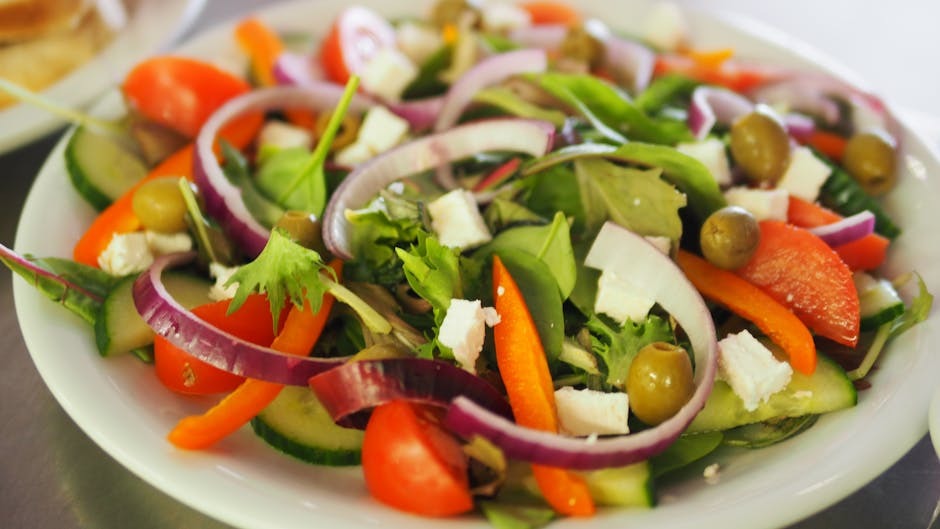Nutritional Strategies for Managing Celiac Disease With Foods
Understanding Celiac Disease
What Is Celiac Disease and How Does It Affect the Small Intestine?
Celiac disease is an autoimmune disorder triggered by the ingestion of gluten, causing the immune system to damage the small intestine.
Celiac is a chronic immune condition triggered by gluten. The disease cannot be “cured” and only managed using supplements, prescription medications, lifestyle changes, and a gluten-free diet.
The immune response triggered by gluten consumption causes damage to the small intestine, thereby limiting nutrient absorption. You may experience vitamin or mineral deficiencies due to the side effects of celiac disease.
Most people benefit from collaborating with a dietitian or other medical provider to create a personalized meal plan that addresses any factors impacting their health and quality of life. Home-delivered meals make it simple to implement dietary changes that improve your overall health.
LifeSpring Home Nutrition offers gluten-friendly meals that can help you create a gluten-free diet that supports gut health and repairs damage caused by gluten.
How Does Gluten Trigger an Immune Response in Those With Celiac Disease?
Celiac disease foods, including gluten, trigger the immune response by accidentally identifying specific nutrients as a threat to your body.
Gluten from grain and other food sources breaks down into smaller peptides during the digestion process. Gluten peptides cross the small intestine’s barrier and trigger an inflammatory response from the immune system. T cells in the immune system respond to and then attack the small intestine, causing inflammation and tissue damage.
Diet plays a critical role in limiting damage to the intestines for people with celiac disease. Eliminating gluten from your diet stops the process that activates your immune system, allowing your stomach to heal and avoid additional damage.
What Are the Common Symptoms and Long-Term Health Implications of Untreated Celiac Disease?
Celiac disease interferes with the body’s ability to absorb nutrients and causes a wide range of symptoms, including digestive issues.
Most symptoms of celiac disease impact the intestines.
However, according to the National Institute of Diabetes and Digestive and Kidney Diseases (NIDDK), “Some people with celiac disease have symptoms that affect other parts of the body,” such as the following:
- “dermatitis herpetiformis
- fatigue, or feeling tired
- joint or bone pain
- mental health problems, such as depression or anxiety
- nervous system symptoms, such as headaches, balance problems, seizures, or peripheral neuropathy
- reproductive problems in women and girls—which may include infertility, delayed start of menstrual periods, missed menstrual periods, or repeated miscarriages—and male infertility
- symptoms involving the mouth, such as canker sores; a dry mouth; or a red, smooth, shiny tongue”
Other symptoms include gas, bloating, diarrhea, constipation, stomach pain, nausea, and lactose intolerance.
Essential Nutrients and Gluten-Free Foods
Which Naturally Gluten-Free Foods Support Overall Health?
Celiac disease nutrition requires gluten-free foods that support your overall health.
A gluten-free diet enhances your overall well-being by promoting gut health and providing essential energy. Leafy greens, lean proteins, gluten-free whole grains, and other foods give a strong foundation for a healthy diet.
LifeSpring Home Nutrition utilizes healthy ingredients to craft delicious and nutritious gluten-friendly meals for you to choose from.
Some naturally gluten-free whole foods include:
- Fruits
- Veggies
- Unprocessed meats
- Fish
- Poultry
- Some dairy products
- Nuts
- Seeds
- Gluten-free grains
Home-delivered meals made of gluten-free, whole foods enrich your diet and improve your overall health. You may also benefit from adding supplements to your diet to increase your intake of essential vitamins and minerals.
How Do Quinoa, Buckwheat, Amaranth, and Other Ancient Grains Fit Into a Celiac-Friendly Diet?
Some ancient grains, such as amaranth, buckwheat, and quinoa, are naturally gluten-free, making them ideal for a celiac-friendly diet.
Some ancient grains are naturally celiac-friendly and can serve as a substitute for grains containing gluten. However, not all ancient grains can offer a safe alternative. Before consuming ancient grains, it is essential to research them to ensure they do not contain gluten.
What Are the Benefits of Leafy Greens, Lean Proteins, and Whole Foods for Nutritional Balance?
Leafy greens, lean proteins, and whole foods can address vitamin and mineral deficiencies caused by intestinal damage and other side effects of celiac disease.
Celiac disease can cause severe damage to the intestines. Switching to a gluten-free diet that incorporates leafy greens, lean proteins, and other nutritious foods helps heal gut damage and reduce the risk of malnourishment or nutritional deficiencies.
Many gluten-free alternatives have fewer vitamins and minerals due to processing, making it critical to eat whole foods, lean meats, and leafy greens.
Foods and Ingredients to Avoid
Which Common Foods Contain Hidden Gluten, Including Processed Foods and Condiments?
Hidden gluten can be found in a wide range of soups, sauces, processed meats, and energy bars.
The majority of processed foods either directly contain gluten or have the potential for cross-contamination due to being packaged in buildings that also process products containing gluten. A warning label should indicate whether foods were processed in a facility that also handles wheat flour or other foods high in gluten.
Some common processed snack foods that have hidden gluten include:
- Seasoned potato chips and tortilla chips
- Licorice, ice cream, and other sugary snacks
- Granola bars and energy bars
- Pretzels
- Snack mixes
Be cautious when consuming snack foods or processed foods with added seasonings. Many seasoning mixtures have hidden gluten.
How Can Additives, Malt Flavoring, and Thickening Agents Affect Gluten Intake?
Additives, malt flavoring, and thickening agents can have hidden gluten and cause significant digestive issues for people with celiac disease.
Many people are unaware that thickening agents, sauces, dressings, gravies, and other additives can contain hidden gluten. Always check labels to determine if certain foods contain hidden gluten or have potential cross-contamination. Replacing add-ons with gluten-free alternatives can significantly expand your meal options.
A registered dietitian can provide information about the types of add-ons that generally contain hidden gluten. You should remain vigilant and keep in mind that many sauces and dressings use flour-based thickening agents that contain high amounts of gluten. If you cannot determine if an add-on has gluten, err on the side of caution and avoid eating it.
Why Is Cross-Contact a Concern and How Can It Be Prevented in the Kitchen?
Even a few crumbs of gluten can trigger a reaction and cause damage to the small intestine, making it essential to prevent cross-contamination by thoroughly cleaning all surfaces and utensils before cooking.
You can use specific techniques and cooking practices to avoid cross-contact in the kitchen. Even a minuscule amount of gluten can cause you significant digestive distress and pain. To avoid exposure to gluten, it is also essential to clean the area and any utensils before preparing gluten-free foods.
Personal hygiene also plays an important role. You should always wash your hands and sanitize anything in the cooking area before getting started. Some people have separate cookware, utensils, and cooking aprons that they color-code and use only on gluten-free foods.
Meal Planning for a Gluten-Free Lifestyle
How Can a Dietitian Help Create a Safe and Balanced Gluten-Free Meal Plan?
A registered dietitian (RD) can help you identify foods and drinks to avoid when shopping, cooking, ordering meals, or eating out.
Experts have years of experience helping people navigate a gluten-free lifestyle, and they share the expertise they have gained with you. Dietitians often recommend apps or other tools to help you manage a gluten-free lifestyle, which can minimize stress in your daily life.
LifeSpring Home Nutrition has RDs you can consult with to ensure you understand your condition and how to manage it.
What Are Tips for Reading Labels and Identifying Gluten-Free Ingredients in Grocery Stores?
Foods safe for people with celiac disease will have a “gluten-free” label on the packaging, indicating that they are free from potential cross-contamination and gluten content.
Even if a food label shows “gluten-free,” you should still double-check the contents to ensure they do not contain wheat, barley, rye, malt, or non-GF certified oats. Also, check to ensure the food was not made in a facility with any of these grains. When in doubt, research the company and food item to ensure they will not contain gluten.
LifeSpring Home Nutrition has a policy of transparency. In addition to using clear food labeling and offering ingredient lists upon request, the company also provides detailed information about any meals upon request from clients or their clinical teams. Home delivery gives you more time to spend with loved ones and do things you enjoy.
How Can Medically Tailored Meals Support Independence and Reduce Stress Around Food Choices?
Medically tailored meals (MTMs) minimize the risk of accidental exposure to gluten and reduce the time and energy required for planning, preparation, and cleanup after meals.
Medically tailored meals give you greater independence and help you avoid the anxiety surrounding logistical challenges of maintaining a gluten-free diet.
MTMs provide safe, ready-to-eat meal options that allow you to stay within recommended dietary guidelines. The ease of preparation and cleanup from premade meals makes them ideal for individuals with medical conditions that require ongoing treatment.
Some of the primary benefits of medically tailored meals include:
- More affordable, tailored meals
- Improved clinical outcomes
- Enhances quality of life
LifeSpring Home Nutrition offers a range of gluten-friendly meal options for you to choose from.
Working With Healthcare Professionals
When Should You Consult a Healthcare Provider or Dietitian for Celiac Disease?
Untreated celiac disease can lead to severe damage to the stomach, and you should seek medical assistance if you notice potential signs of the disease or if you have a family history.
If you have type 1 diabetes or other risk factors, you should get checked if you begin to notice any food sensitivities or digestive issues.
Warning signs of celiac disease include gastrointestinal problems such as bloating, diarrhea, excessive gas, constipation, anemia, unexplained weight loss, fatigue, and dermatitis herpetiformis. A medical professional can assess your condition and give you an accurate diagnosis.
How Can Supplements Address Nutrient Deficiencies Common in Those With Celiac Disease?
People with celiac disease often experience nutritional deficiencies due to malabsorption or difficulty introducing specific vitamins and minerals into their diet. Supplements fill the gaps by ensuring you avoid deficiencies and related health issues.
Supplements naturally provide protection against nutritional deficiencies for people with celiac disease. According to Medicina, “[S]ome patients with celiac disease may need additional nutritional supplements.” Also, “In the decision on when to start, some authors suggest undertaking supplementation in the moment in which the intestinal lesions are healed.”
What Role Does Ongoing Monitoring Play in Maintaining Gut Health and Overall Wellness?
Ongoing monitoring ensures you notice the signs of potential nutritional deficiencies or other issues before they begin to impact your health.
Your condition may affect your weight loss, mental health, or overall wellness. People who cannot eat gluten often have damage to their intestines caused by gluten sensitivity. To avoid long-term complications or side effects and ensure your gut heals properly, it is essential to monitor your general health and diet.
LifeSpring Home Nutrition facilitates self-monitoring by providing you with the tools to create comprehensive meal plans that meet your specific dietary requirements. The weekly meal deliveries will enable you to more easily notice any changes in your energy, digestion, or overall wellness.
FAQs
Can celiac disease be managed solely with a gluten-free diet?
Some people can manage their celiac disease successfully by simply changing to a gluten-free diet; however, other people may have significant internal damage that impacts their ability to absorb essential nutrients, making it vital for them to take supplements or medications.
A healthcare professional can help you create a personalized meal plan tailored to your specific nutritional needs.
LifeSpring Home Nutrition collaborates with healthcare providers to ensure that each client receives the best meals tailored to address their particular health needs. With an ingredients list upon request and clear food labels, it makes it easy for you to choose meals that contain gluten-free alternatives.
Which foods commonly have hidden gluten that should be avoided?
Typical foods with hidden gluten include soy sauce, gravies, sausage, deli meats, sauces, broths, salad dressings, seasonings, beer, flavored coffees or teas, processed snacks, and frozen foods.
Some additional foods and Ingredients that have gluten include:
- Durum
- Spelt
- Triticale
- Semolina
- Emmer
- Freekeh
- Farina
- Kamut
- Couscous
- Wheat flour
- Malt vinegar
- Lagers
- Alcoholic beverages
- Sausages, hot dogs, and other processed foods
- Restaurant French fries
- Most wafers
Some gluten-free alternatives include:
- Teff
- Sorghum
- Tapioca
- Millet
- Cassava
- Corn tortilla
- Arrowroot
Gluten-free flours make an excellent thickener, helping people with gluten intolerance enjoy healthy, nutritious meals. LifeSpring Home Nutrition offers gluten-friendly meal options and medically tailored food choices for individuals with highly specialized dietary needs.
How much gluten is safe for someone with celiac disease?
You can safely eat less than 10 mg of gluten or 20 parts per million each day without experiencing damage to your intestines.
The amounts listed above are general, and there is no universal safe amount of gluten. According to the Food and Drug Administration (FDA), “[A]ny foods that carry the label ‘gluten-free,’ ‘no gluten,’ ‘free of gluten,’ or ‘without gluten’ must contain less than 20 parts per million (ppm) of gluten.” The lowest measurable amount of gluten is 20 parts per million.
Can cross-contamination occur in restaurants and packaged foods?
Yes, cross-contamination can happen in a restaurant setting or with shelf-stable, refrigerated, and frozen foods.
Hidden gluten and cross-contamination may put you in a dangerous situation if you eat out, order baked goods, or try packaged food without researching it first.
LifeSpring Home Nutrition eliminates the guesswork of home-delivered meals by being transparent about ingredients and offering gluten-friendly dishes with clear gluten-free labeling. A complete ingredient list can be provided upon request, ensuring you know if your food may contain small amounts of gluten.
How quickly do symptoms improve after starting a gluten-free diet?
Most people notice symptoms of celiac disease improving several weeks after starting a gluten-free diet.
The time it takes can vary significantly depending on several factors. You may notice symptoms gradually improving starting within the first few days and becoming noticeably better within weeks or months.
Your healthcare provider can provide a more detailed timeline tailored to your specific health status, medical history, and dietary needs. Removing sources of gluten from your meals will give your stomach time to heal from the damage caused by previous gluten ingestion.
The amount of gluten you have eaten in the past may impact how quickly you recover. LifeSpring Home Nutrition helps individuals recover from the effects of celiac disease by providing gluten-free food products.
Celiac disease can cause severe health issues and digestive problems. LifeSpring Home Nutrition makes it easy for people to adopt a gluten-free diet with our gluten-friendly meals. To learn more about our services and how to sign up for weekly home-delivered meals, call our office today at (800) 798-5767.
 Call To Order
Call To Order



















